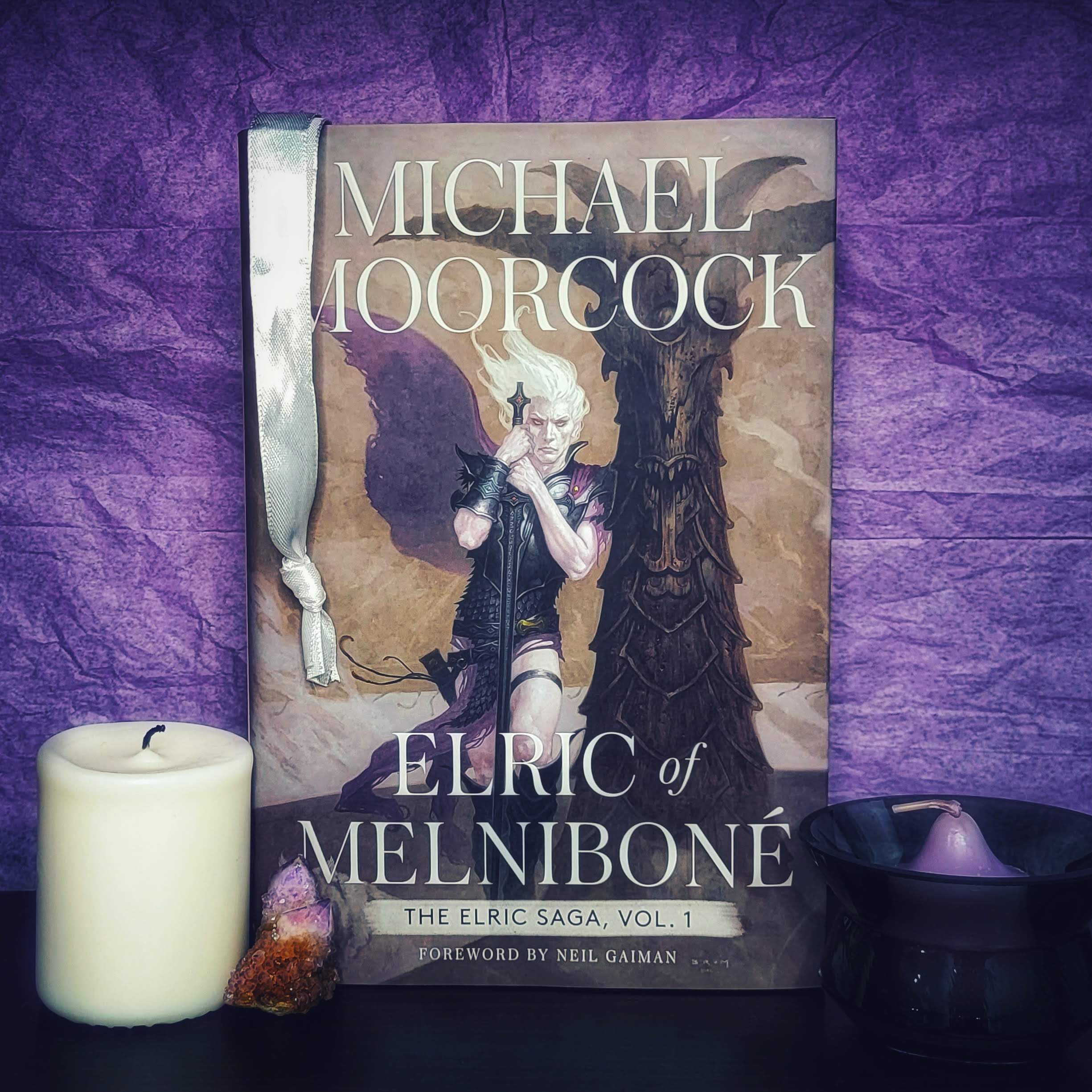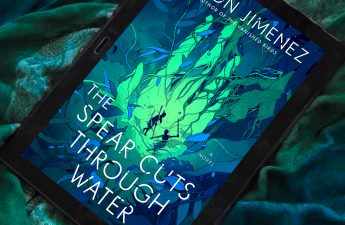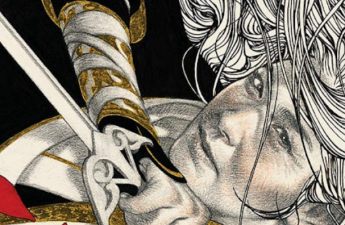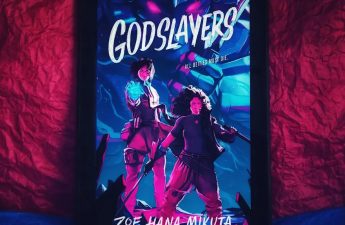Melnibone is an empire that has dedicated itself to hedonism and sadism for centuries, dominating and subjugating the surrounding kingdoms. Over time their hold on the other lands failed and their own power diminished. Melnibone is now a shadow of what she once was. Emperor Elric is the rightful ruler but not the one that Melnibone wants. He does not revel in pain and human suffering the way his subjects do, instead, the man prefers to ask philosophical questions of those close to him and attempts something as close to mercy as a Melnibonean can conceive. When given the opportunity to leave Melnibone and travel the Young Kingdoms for a year, Elric leaves to find knowledge that he believes will revitalize his dying nation. But after everything he sees, will he even want to save Melnibone?
Elric’s arc spans many books written as individual stories not seemingly published in any specific order. Tor has decided that in order to make it easier for new readers to enjoy the Elric Saga they will present it bound up in what they believe to be a narratively compelling order over the course of multiple omnibuses. This first book includes four of Moorcock’s Elric novels: Elric of Melnibone (1972), The Fortress of the Pearl (1989), The Sailor on the Seas of Fate (1976), and The Weird of the White Wolf (1977). I think it helps to keep in mind the publishing order while reading through the omnibus. Moorcock’s writing changes and develops greatly over the years so it can be jarring to read Weird at the end when it was actually the first Elric novella published.
Publishing order:
- Elric of Melnibone (1972)
- Fortress of the Pearl (1989)
- Sailor on the Seas of Fate (1976)
- The Weird of the White Wolf which originally was published in 4 different parts
- The Dream of Earl Aubec (1964) which acts as a prologue of sorts
- The Dreaming City (June 1961)
- While the Gods Laugh (October 1961)
- The Singing Citadel (1967)
These books are definitely older than I usually prefer my fantasy (with the notable exception of Tolkien’s work) and I was a little concerned about what I would find when I first started reading them. Moorcock has a specific style and voice that I immediately enjoyed while also having significantly less sexism and racism than I was expecting. It reads much like an ancient epic, think Oddessey and Prose Edda, with readers following Elric as he interacts with many supernatural entities and goes on a variety of daring adventures. Adding to the Norse aspects are the multiple worlds and cyclical nature of time in this series. The worldbuilding feels as expansive as Tolkien’s, with a depth and breadth that goes beyond what we as readers can know. The fact that the book as a whole is an omnibus creates the feeling that these are fragments of stories that have been cobbled back together by historians, as many ancient works have been. Altogether, these elements lend the books a seemingly historic and traditional weight, while also handling newer concepts in fantasy. The pacing could be slow at times but I put that down to Moorcock’s descriptive writing style.
Returning to the idea of representation in 20th-century fantasy. The first Elric omnibus surpassed all of my expectations, not that that is saying much. There still aren’t many women in the first four books but those that are present are relatively fleshed out with their own cares and motivations. He has quite a few BPOC characters in this omnibus alone. I think there could be some issues with orientalism in The Fortress of the Pearl, the vaguely Middle Eastern/South Asian aesthetic and cultural garb is used to highlight the otherness of the people of Quarzhasaat and their “barbaric and greed laws”. I am hoping that this will not be a continuing theme throughout his works. As always, please take any observations I make about BIPOC representation with a grain of salt, BIPOC reviewers are the authority on this, I am just trying to point out any issues that I see.
I didn’t care for the way Moorcock treats Elric’s albinism in his earlier books, it seems very “magical disability”-esque and plays into the complex feelings Elric has about Stormbringer. On the topic of disability, there is a disabled woman who has lost a limb, leading to her being cast out of her community and wishing to find a way to retrieve it. Elric belittles her for having such a superficial quest and when she tries to stand up for herself, he uses his albinism and unexplained weakness as justification for why he is allowed to berate her. It was an uncomfortable scene to read and while I understand that it was early in Moorcock’s writing career, I will have a hard time forgetting it.
On a more positive note, the Elric Saga has multiple levels of queer characters. One character in Sailor explicitly says that he joined the crew because he had been discriminated against because of his sexuality in another land. I’ve also been informed by the friend that recommended this series to me that Oone is likely a crossover from another series and that if this is true, she’s sapphic. And while nothing is official, Elric’s relationship with the Chaos Lord Arioch seems almost homoerotic at times, with multiple paragraphs dedicated to his youthful and striking beauty every time he appears. Arioch refers to Elric with fondness and affection while also encouraging him to accept immortality and join him forever in the realm of Chaos.
Overall, I rated this first volume 3.5 stars. I enjoyed it despite the slower pacing and plan to read more of the series. I will be keeping a close eye on the way that Moorcock writes characters of marginalized communities and I expect better of him in the next volume.
Get it Here!



